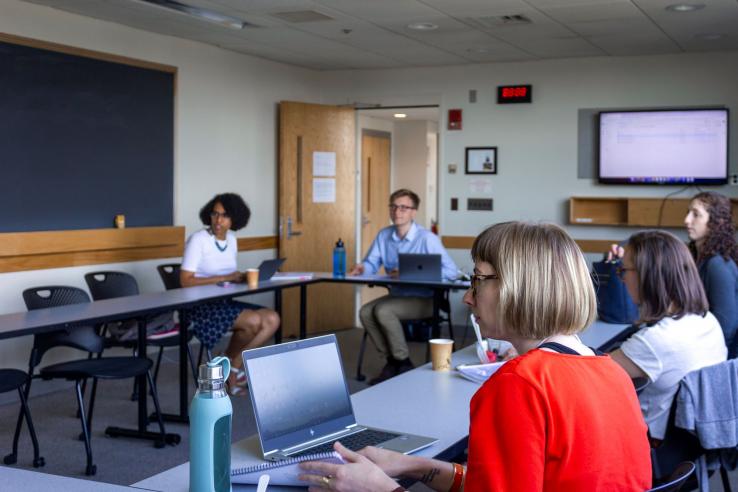J-PAL Executive Education: Evaluating Social Programs, US 2020

Coronavirus Update
Following guidelines from the Center for Disease Control and the World Health Organization, this course has been postponed indefinitely. We hope to reschedule to a date later in 2020 once the coronavirus pandemic passes. In the meantime, please contact [email protected] if you have any questions.
While our in-person course in Cambridge has been postponed indefinitely due to the coronavirus pandemic, we are excited to offer a free webinar series during the originally scheduled course dates. Learn more and register here >>
***
To receive email announcements on other upcoming J-PAL courses, subscribe to our Course Announcements newsletter.
Course content
This five-day in-person training equips participants with resources and knowledge to engage with impact evaluations of social programs. The course provides an in-depth look at why and when randomized evaluations can be used to rigorously measure social impact, methods and considerations for their design and implementation, and how findings can inform evidence-based policies and programs.
Lectures and case studies use real-world examples to prepare participants to apply learning at their home organizations. The course covers both the technical design and pragmatic considerations of measuring impact with a randomized evaluation.
Key concepts covered
-
Why and when a rigorous evaluation of social impact is needed
-
The key components of a high-quality randomized evaluation
- Foundational tools like needs assessments, logical frameworks, and theories of change
- Common threats and to the validity of experiments
- Techniques for incorporating randomization into existing program designs
- How to determine an appropriate sample size and measure outcomes
- Techniques for data analysis and interpretation of results
- Strategies to maximize policy impact and assess the generalizability of research findings
- Frameworks to understand and apply the results of prior randomized evaluations to your program
Connections with peers, academic researchers, and experts in the field
Renowned academic researchers from MIT, Harvard, and other institutions will lead sessions where participants can ask questions about how to generate rigorous evidence to inform decision-making.
Participants will engage in small group discussions with J-PAL staff and other participants, providing opportunities to forge connections with peers. By working through case studies in groups with the support of staff, participants will solidify new concepts and discuss how they might apply new skills to future projects. Small group engagements with J-PAL staff provide the opportunity to engage directly with and learn from experts while practicing new skills. Through the course, participants build a network of peers who work on program evaluation or delivery in health, education, housing, development, governance, and other fields.
Former participants say:
“Great opportunity to design and receive feedback on our own evaluations.”
“Really enjoyed the teaching methods. The initial exposure to case studies was then solidified through lectures and small group work. The constant interaction kept students engaged throughout.”
“I enjoyed this training very much and thought the experience was excellent. I still am buzzing whenever I speak about it. There were many wonderful aspects: the working groups, the quality of the other students, the quality of the TAs and the seriousness and dedication of the training effort. It was absolutely first-class.”
Key information
Dates: TBD
Location: Massachusetts Institute of Technology, Cambridge, MA, United States
Contact: Please email us at [email protected] with questions about applying or details about the course.
For further information on J-PAL’s Evaluating Social Programs course, including frequently asked questions, please refer to our website.
Fees
Fees for the course vary depending on organization type and operating budget. Please refer to the table below to determine your course fee. The fees include breakfast, lunch, beverages, and snacks, as well as a reception. Travel and accommodations are not included.
|
Organizations headquartered in high-income* countries |
Organizations headquartered in low- and middle-income* countries |
|
| For-profit, Foundation, or Intergovernmental organization | $3,500 | $3,500 |
| Academic or Research Institution | $3,500 | $2,500 |
| National government | $3,500 | $2,500 |
| State, county, or municipal government | $2,500 | $1,500 |
| NGO (operating budget > $10M) | $2,500 | $1,500 |
| NGO (operating budget < $10M) | $2,000 | $1,500 |
*World Bank Income Categories.
Note: Staff at academic institutions may qualify for tuition assistance from their institution (see, for example, tuition benefits at MIT).